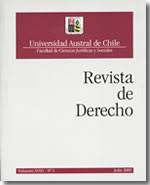On the radical foundation of (human) nature and human rights
Main Article Content
Abstract
Iusnaturalism and antipositivism accept or are forced to assume that human rights must be grounded on solid, unchangeable, eternal and absolute foundations. Otherwise, the development of a permanent and stable theory of human rights would be impossible to achieve. The ontic stability is an a priori requirement of these theories, because, without it, these theories fall into relativism. This implies a cognoscitive perspective as well: the founding principles of law can be discovered by reason. The whole iusnaturalist theory of human rights assumes that there is a human nature and that we can access it through our reason. This paper examines this problem from a logic – semantic perspective. This point of view reveals unknown aspects of the matter and opens new posibilities for the understanding of legal objectivism, for which human nature and human dignity exist and, therefore there are absolute human rights, as well.

